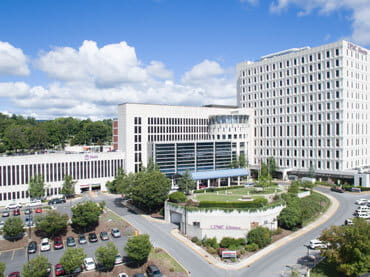Everyone experiences times of crisis in life. You might be struggling with depression or substance abuse. Or maybe you’re overwhelmed by problems at work, feeling lonely, or having a conflict with a loved one.
We offer free crisis services 24/7 for all Blair County residents.
Our Free Crisis Services
- 24-hour hotline: Call 814-889-2141, Option 1, anytime to speak with a trained counselor.
- Mobile Crisis Team: Our mobile crisis team travels anywhere in Blair County to provide face-to-face crisis services.
- Walk-in center: No appointment is needed to get help at our walk-in center, located at 501 Howard Ave., Building C, Suite 104, Altoona. Walk in anytime on weekdays from 8 a.m. to 8 p.m. You can talk to a counselor or connect to other help you need.
- Therapeutic milieu: Therapeutic milieu is available for additional support, Monday through Friday from 9 a.m. to 5 p.m., and is
provided by clinicians and/or peer support specialists. Our therapeutic milieu provides anyone in crisis with the opportunity to take a time-out, catch their breath, and receive additional support.
Behavioral Health Access Center Services
If you are not experiencing an urgent mental health need, we also provide a wide variety of services through our Access Center, located at 501 Howard Ave., Building C, Suite 104, Altoona. Call 814-889-2289, Monday through Friday, 8 a.m. to 4 p.m.
What we do
- Arrange care for people having mental, drug, or alcohol problems.
- Help those who have Medical Assistance, private-pay, or no health insurance.
- Provide free resources and referrals.
The Access Center cares for anyone without regard to race, faith, gender, age, national origin, disability, or economic status.
Services
We offer referrals to services for all age groups, including
- Alcohol, tobacco, and drug use.
- Inpatient and outpatient drug and alcohol rehab.
- Prevention programs.
- Case management.
- Crisis support.
- Dual diagnosis services.
- Family-based care.
- Mental health.
- Inpatient treatment for adults and teens.
- Outpatient treatment for adults and children.
- Partial hospital stays for adults and children.
- Local support resources.
- Senior assessments.
- Student Help Program.
What to expect when you call the access center
Please prepare a summary of the problem you or the person you are referring is having and provide:
- Insurance information.
- Address.
- Phone number.
- Age.
- Gender.
A trained staff member will decide the proper level of treatment and make an appointment with a provider of your choice.

















